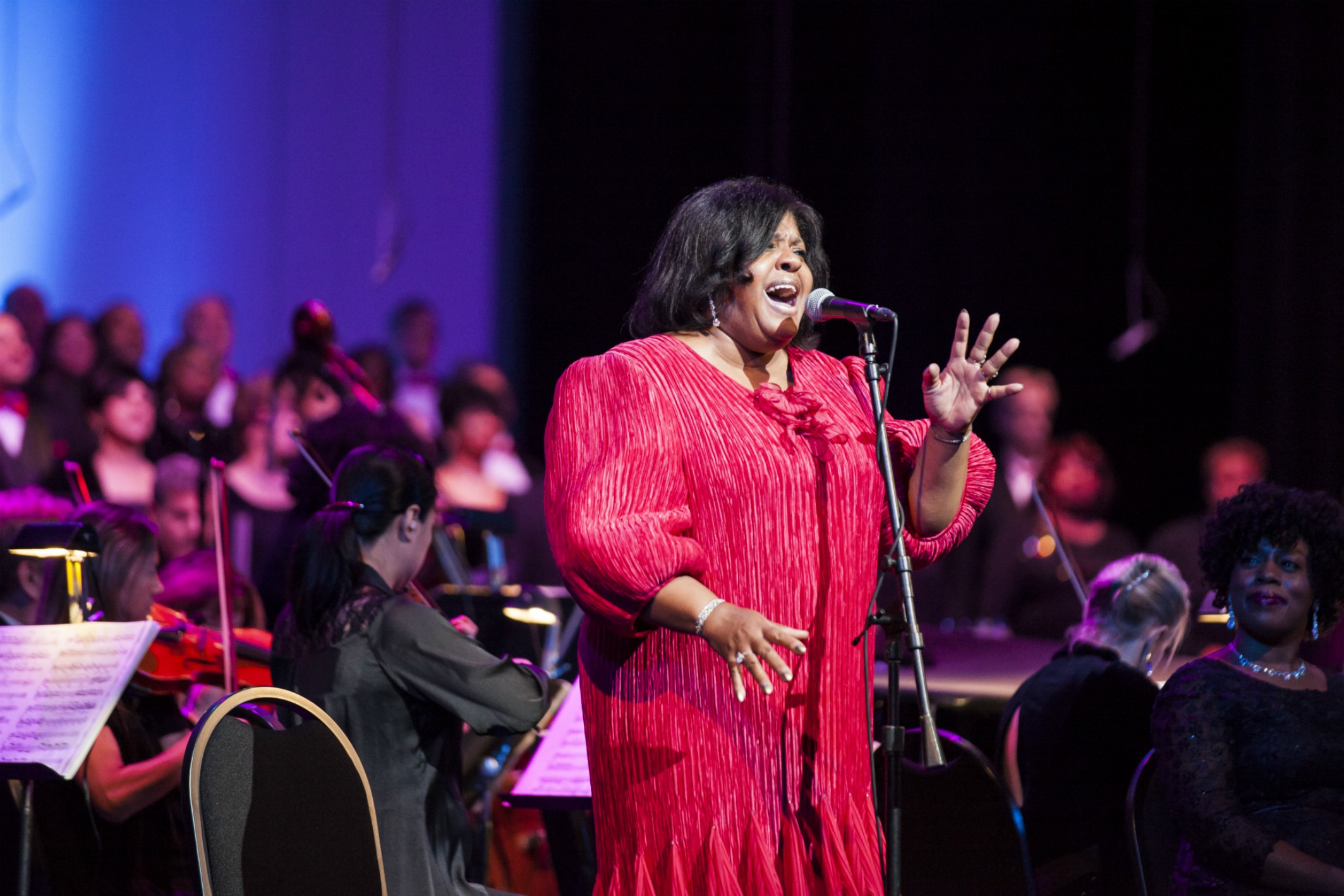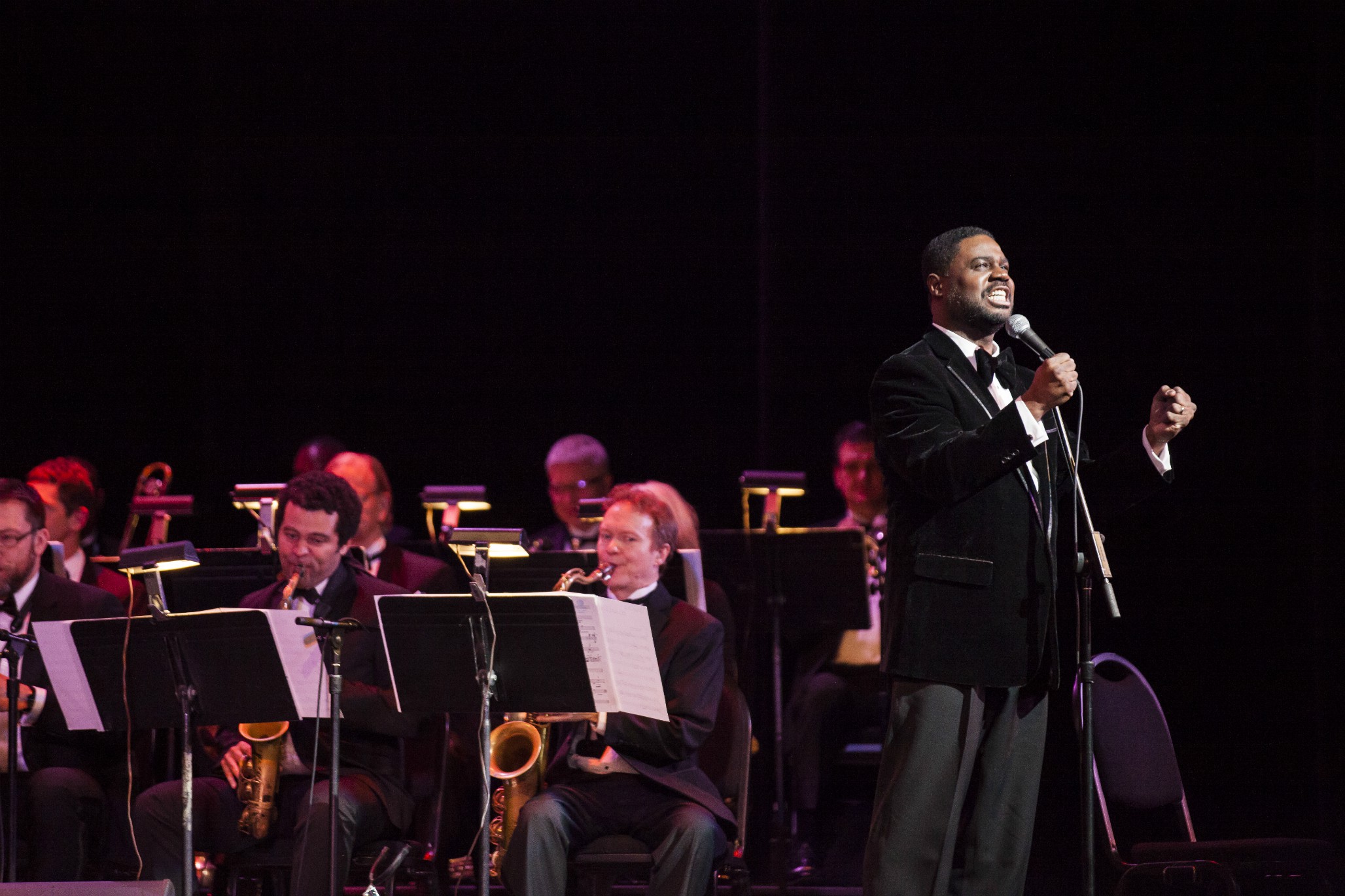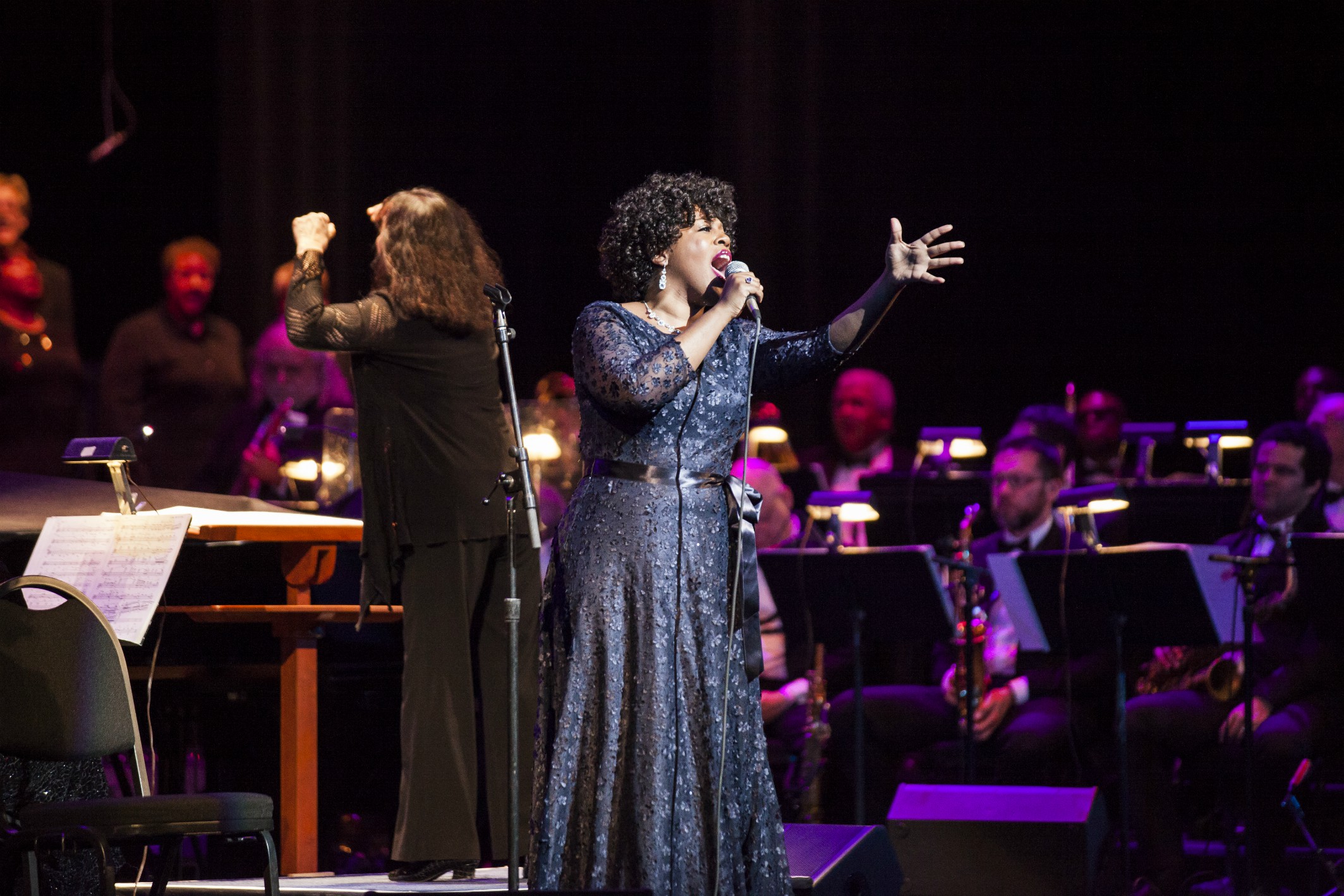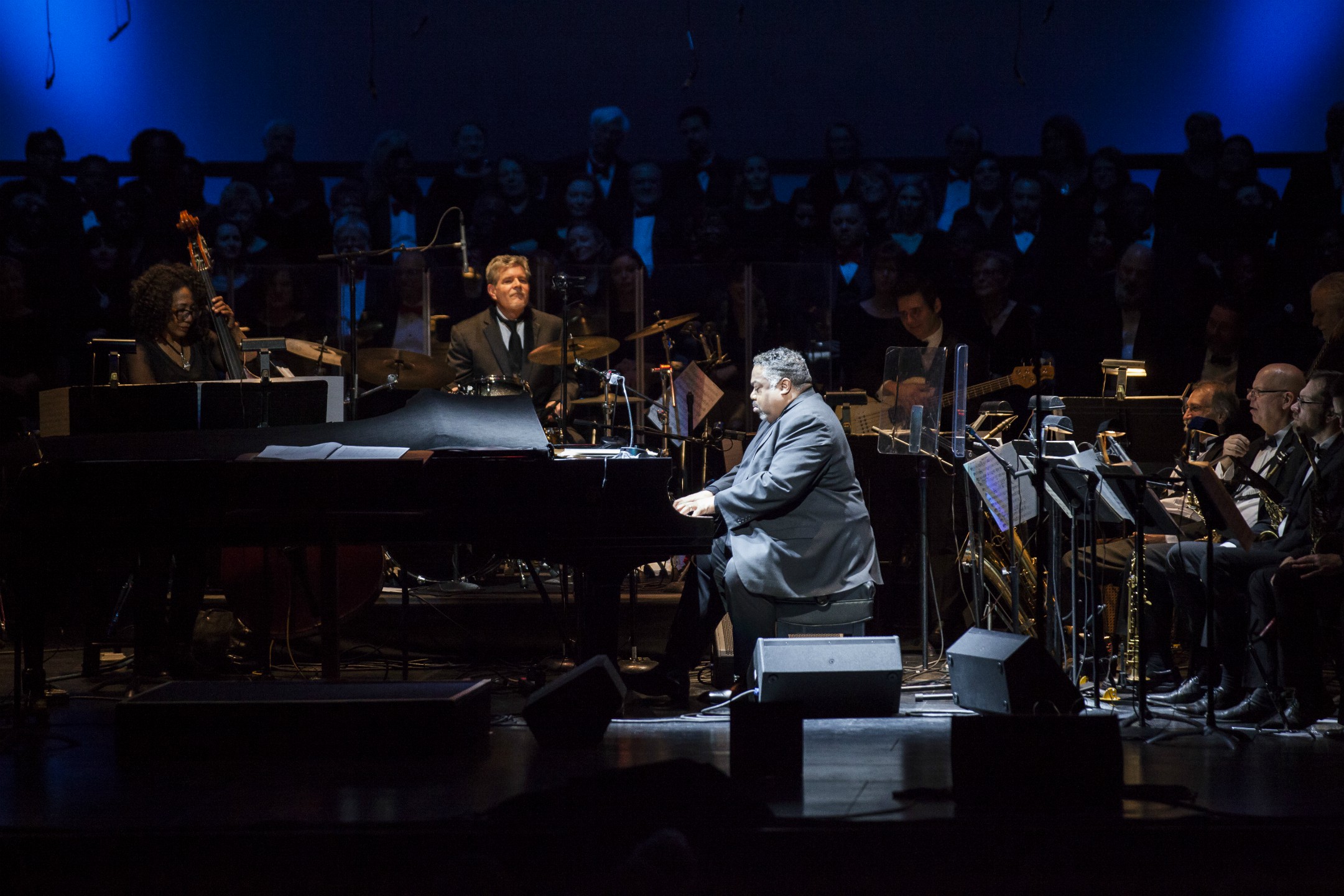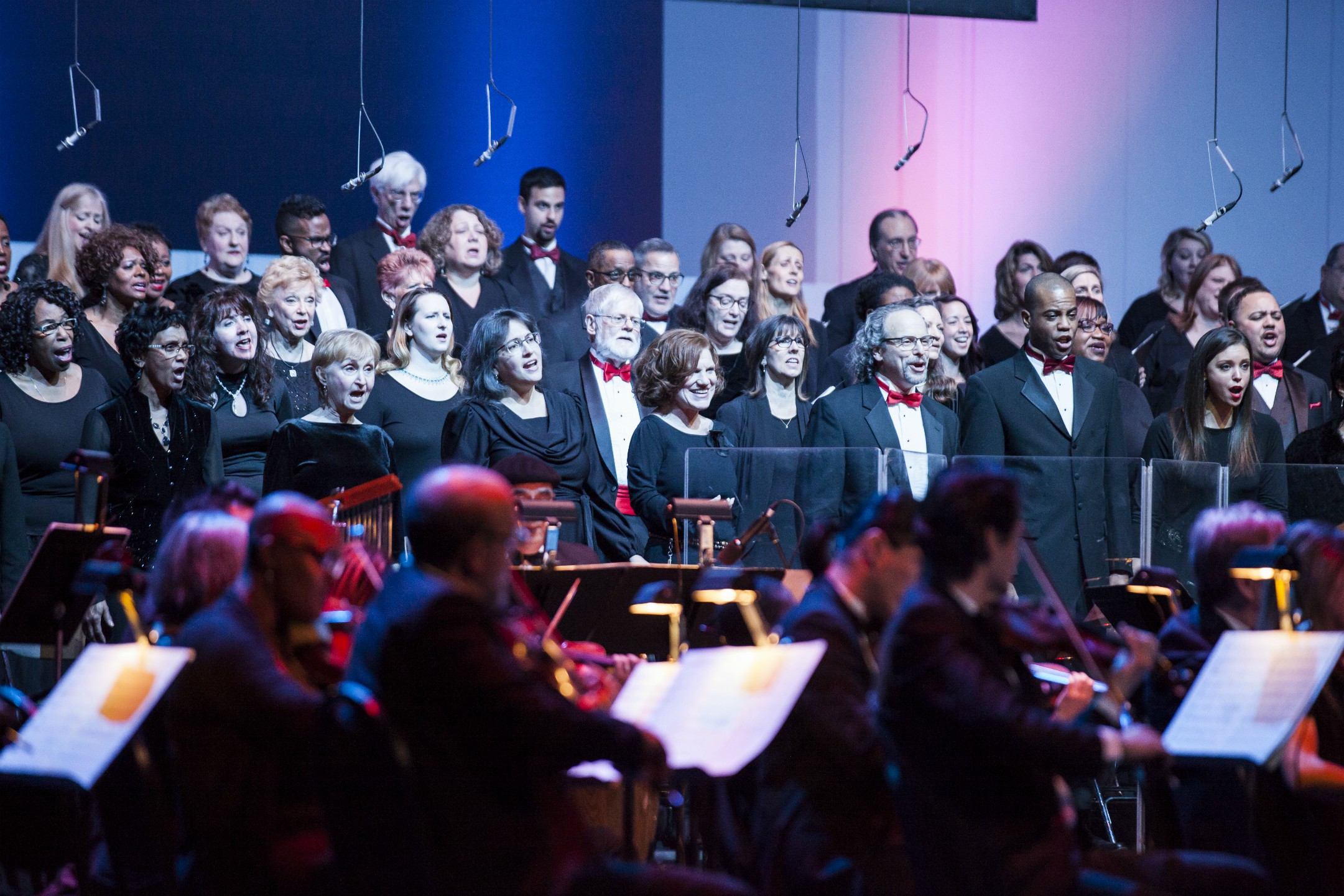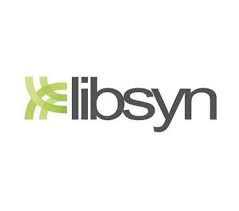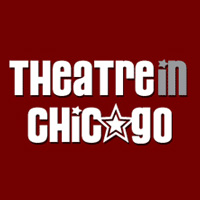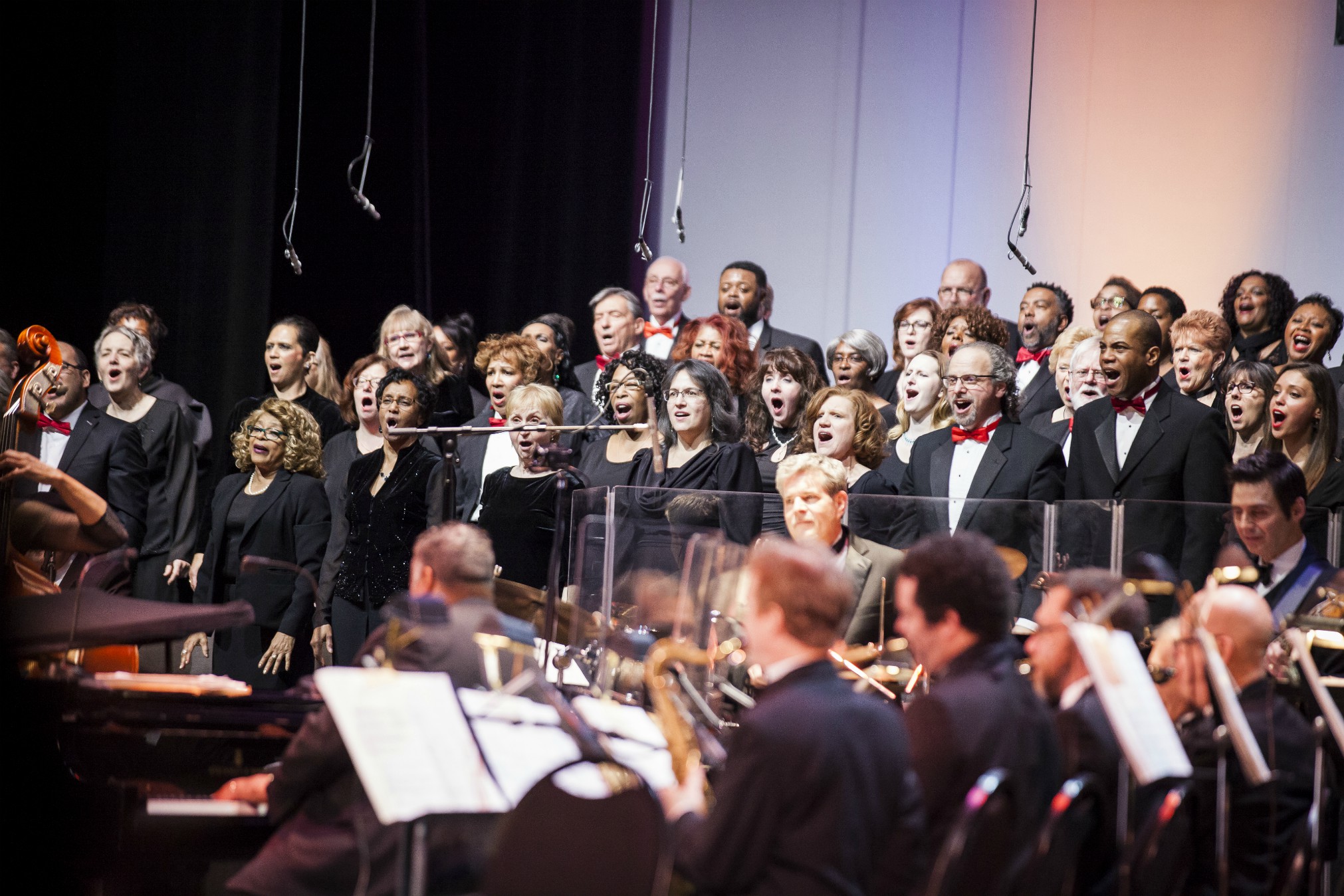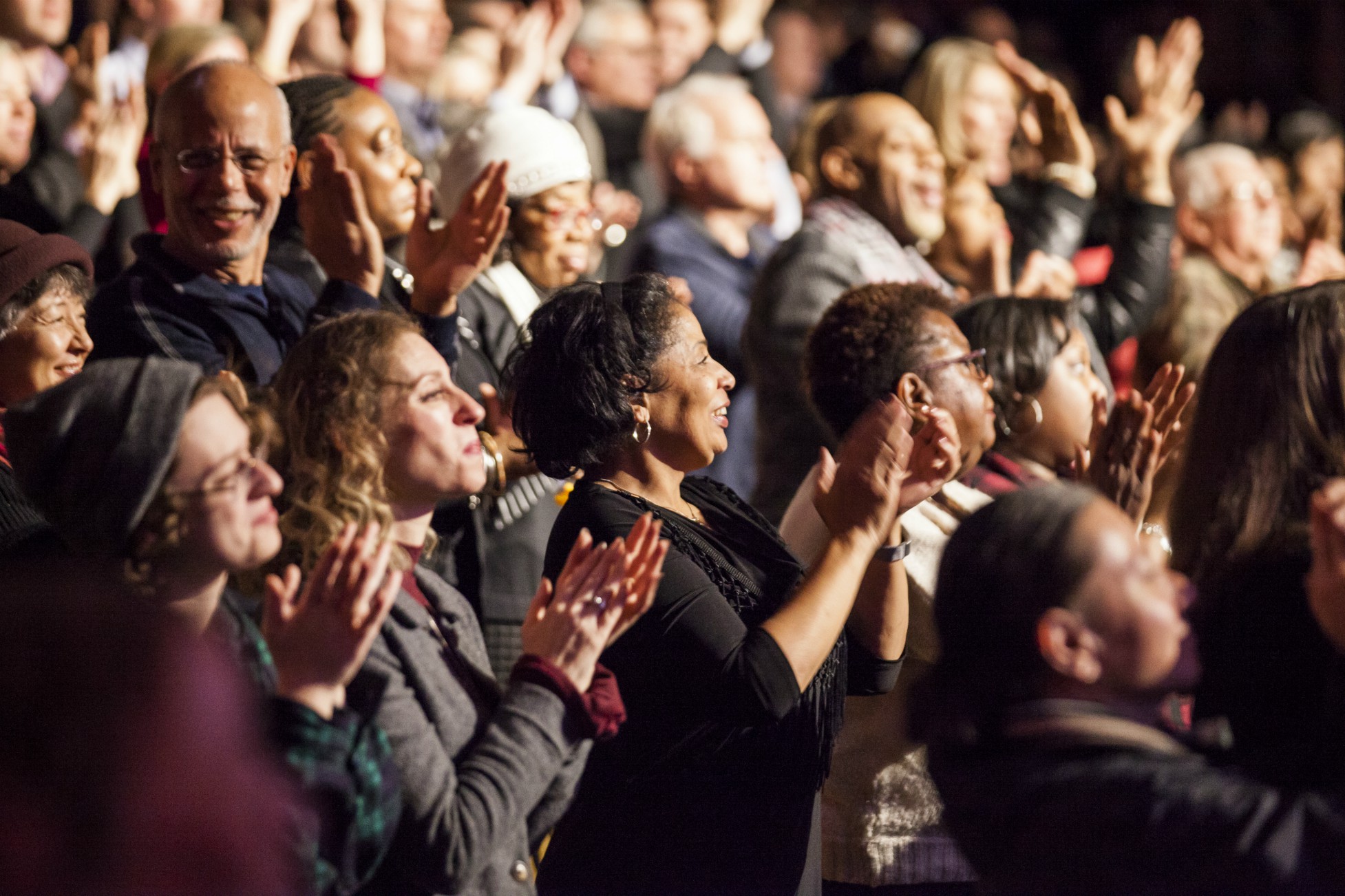ALFREDA BURKE AND RODRICK DIXON - Too Hot To Handel
Renowned soloists Alfreda Burke and Rodrick Dixon join with Karen Marie Richardson, the legendary Detroit pianist Alvin Waddles and over 100 musicians and vocalists to present Too Hot To Handel, the blues, jazz, gospel, and rock-infused treatment of Handel’s Messiah in celebration of the life and legacy of Martin Luther King, Jr. The 14th annual Chicago concerts will be held on January 19 and 20 at the Auditorium Theatre and will be live-streamed to inmates in a unique partnership between the Auditorium and the Christian Reform Church.
Too Hot To Handel was first created and conceived by Marin Alsop with Bob Christianson and Gary Anderson. The first performance was held in 1993 at Lincoln Center with the Concordia Orchestra and the Morgan State Choir. Burke, Dixon and Suzanne Mallare Acton collaborated in 2002 to first present the program in Detroit and in Chicago in 2004. Memphis was added last year to the tour.
Alfreda Burke and Rodrick Dixon joined the conversation on January 3rd to talk about the evolution of the program, the universality of Handel’s work and the power of music to inspire and uplift our lives. PODCAST
Origin in New York City … (Rodrick Dixon) “Too Hot to Handel was first created and conceptualized by Marin Alsop, who is the current music director and conductor of the Baltimore Symphony Orchestra, the São Paulo Symphony Orchestra in Brazil and is taking over the Vienna State Orchestra in 2020. … She started in 1991 with Bob Christianson and Gary Anderson to take Handel’s work and reimagine it for New York City in particular at a premiere in 1993 at Lincoln Center ... she thought it would be germane to the experience of making this transformative work of Handel.”
Detroit and Chicago … (RD) “Frieda became involved in the project in 2002 because Suzanne Acton, who was the conductor at Michigan Opera Theater, with David DiChiera, attended a performance of Too Hot to Handel at Lincoln Center with Bill Fraser from Old St Patrick's Church in Chicago and myself. We were talking after we saw the show at Lincoln Center and I said to them, I think it would be perfect for Detroit … perfect for Chicago. … and they thought that Freida and I would be a well-served for Chicago because she was a classically trained soprano in Detroit and Chicago. … We felt that the show needed to have two classical singers and one Broadway/jazz singer in the middle because we felt that this show would do well in a classical entity like the Detroit Opera House and in a city like Chicago because it's Handel. … In Detroit, Chicago and Memphis, we tend to stay closer to handling the improvisational spirit with jazz and gospel.”
The Program… (Afreda Burke) Alvin Waddles, the piano man, sounds like an orchestra by himself. You have on the stage about 100 voices or more. …an orchestra. … a jazz combo …a big band feel, as well. … much more than what Handel had when he had strings, harpsichord and winds… three soloists (with Karen Marie Richardson) and Suzanne Acton at the helm leading everybody. It is really important to mention that the audience is also part of this show because there is a call and response and they are able to participate … such electricity and enthusiasm … they bring such joy and are able to stand, shout, sing, dance, clap. …it is a perfect show for all ages.”
Inspirational Improvisation … (RD) “Alvin allows us to move the show around in all three cities. … when Alvin improv's he is scouring the room to figure out where the room is. … the improvisation is also inclusive of the text, not only germane to the genres that are being performed in the concert. … (AB) Certainly the text inspires what Alvin is going to play and all of the musicians when improvising, but also what's going on in the world. Alvin will play (a tribute) to a great musician. … their songs or depending on the season … as an homage to a great person who has passed on. … songs that are related to Dr Martin Luther King, Nobel Peace Prize Laureate, Gospel Minister … Community and inclusion. Hope. Love. His songs will include that spirit as well. …you never know what's coming out of that mind. (RD) He will play something that will speak to our freedom and the audience at the same time. … Karen Marie Richardson is our Jazz/Broadway singer … the formula really works. It is the tenor who is classically trained, who crosses over. The soprano, who is classically trained, who crosses over. And the alto is jazz, blues, pop and Broadway. And Alvin sits right behind all of us and he just really finds where the room is.”
A Beloved Community… (AB) “Everybody is in different moments emotionally in their lives. … they come to the theater to be transported to another place … and you hear that amalgamation on the stage … you feel it, you respond to it. (RD) I would say that what we have discovered in each city – Detroit, Chicago, Memphis -- there is a universality about connecting to each other in the work that really touches on that process. In that two-hour period of time, no matter where you are coming from, into the Auditorium Theater – which is the ‘Theater of the People’ – there is a sense of this. … Time to think about what makes us American. What makes us alive as Americans and how we connect each other as Americans. So, there's an individual, there's a plural sensibility about it and a historical significance. And the theater represents all of that. When you walk into that space …a King celebration in January … a ‘beloved community’ … with dance, theater, music, art and politics, this show sits in that very cradle of the essence of what it means to be at the Auditorium Theater. Too Hot to Handel is that experience.”
Handel's Messiah … (AB) “composed in 1741 …it took him 24 days. …three parts to it and all of these wonderful scriptures …the prophecies, the birth, the life, the death, the resurrection of Jesus Christ. … Handel was a man of the people. The proceeds of Handel's (original) Messiah went to orphans and to founding a children's hospital … People are still being inspired, uplifted, blessed and transformed by this piece … and these powerful words. (RD) … it also is a religious experience in terms of the performance in the theater. And what I mean by that is that, that even though you may or may not be a Christian or you may come from the Jewish backdrop or Hindu or Buddhism …the difference is not what makes the show successful. It is the similarities of the human experience that makes this show so successful.”
Comments have been edited for length and clarity.
PHOTOS|Kristie Kahns
WEBSITE
TICKETS
(312) 341-2300
PODCAST available on Apple Podcasts, Libsyn and Stitcher
ARCHIVE DE USURIS BLOG EMAIL WEBSITE SUBSCRIBE

